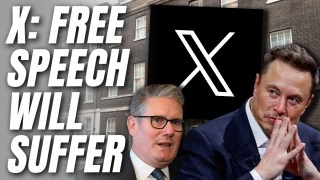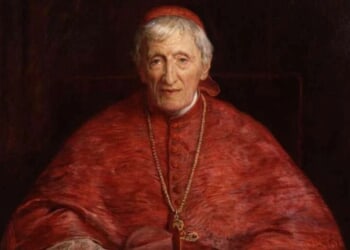
Elon Musk’s X has attacked the UK government for threatening free speech and encouraging censorship with the implementation of the Online Safety Act. In a statement released this afternoon, the social media giant said:
“To date, regulators have taken a heavy-handed approach by rapidly increasing enforcement resources, adding layers of bureaucratic oversight and signaling an aggressive approach to ensuring compliance. Instead of specifically and collaboratively addressing a problem everyone agrees needs to be solved, many are now concerned that a plan ostensibly intended to keep children safe is at risk of seriously infringing on the public’s right to free expression.
This risk is not a surprise to the UK government. When lawmakers approved these measures, they made a conscientious decision to increase censorship in the name of “online safety.” It is fair to ask if UK citizens were equally aware of the trade-off being made.”
The company goes on to say that “without a more balanced, collaborative approach, free speech will suffer“, and the government’s timetable for meeting mandatory implementation measures “has been unnecessarily tight“. Just yesterday, the Act caused a benign, parodic image of Keir Starmer’s head on a baby’s body to be blocked entirely from X…
“The UK’s Online Safety Act began rolling out early 2025, introducing several new mandates, some of which are aimed at protecting children from harmful online content. Included in the Act’s mandates, however, are measures that prevent adults from encountering “illegal” content and steps to ensure age verification that limit adults’ anonymity online.
As a result, the Act’s laudable intentions are at risk of being overshadowed by the breadth of its regulatory reach. Without a more balanced, collaborative approach, free speech will suffer.
To date, regulators have taken a heavy-handed approach by rapidly increasing enforcement resources, adding layers of bureaucratic oversight and signaling an aggressive approach to ensuring compliance. Instead of specifically and collaboratively addressing a problem everyone agrees needs to be solved, many are now concerned that a plan ostensibly intended to keep children safe is at risk of seriously infringing on the public’s right to free expression.
This risk is not a surprise to the UK government. When lawmakers approved these measures, they made a conscientious decision to increase censorship in the name of “online safety.” It is fair to ask if UK citizens were equally aware of the trade-off being made.
Recent events indicate the public is not comfortable with this level of intervention. For instance, a petition to repeal the Act is gaining momentum, collecting over 450,000 signatures in just the first few days after it was created.
X is among the companies to have worked hard to be in compliance. However, the timetable for meeting mandatory measures has been unnecessarily tight. And, despite being in compliance, X and its counterparts still face threats of enforcement, fines and rigid oversight, encouraging over-censorship.
Consider as well the emergence of a new “Voluntary” Code of Conduct recently enacted by the UK Home Office and the Violence Prevention Network (VPN) purportedly to address harmful online behaviors before they escalate. Supported by Ofcom, this parallel and duplicative effort was introduced at a time when companies were already pushing hard to meet the requirements in the Online Safety Act.
Government officials responded to questions about additional oversight by saying that the Online Safety Act isn’t “adequate enough to address harmful online behaviors.” This new code of conduct is specifically targeted at social media, gaming, and other interactive platforms to “encourage” proactive enforcement efforts, such as training staff and campaigns to curb “harmful content.”
Because the Voluntary Code of Conduct comes so quickly on the heels of the Act’s enforcement, it inevitably creates a “double compliance” burden. Facing pressure to adopt additional measures on top of the already demanding legal obligations set forth in the Act will only lead to additional curbs to freedom of expression.
who characterize it as excessive and potentially restrictive.
While everyone agrees protecting children is a critical responsibility, it is also clear that an overly rigorous statutory framework layered with a “voluntary” code and heightened police monitoring, oversteps the intended mission.
To be clear, X is in the business of solutions and we have been vigorously committed to providing a safe and constructive experience for users in the UK and worldwide. A balanced approach is the only way to protect individual liberties, encourage innovation and safeguard children. It’s safe to say that significant changes must take place to achieve these objectives in the UK.”


![Former Bravo Star Charged After Violent Assault Using a Rock-Filled Sock in Tennessee Walmart [WATCH]](https://www.right2024.com/wp-content/uploads/2025/07/Former-Bravo-Star-Charged-After-Violent-Assault-Using-a-Rock-Filled-350x250.jpg)




![Karoline Leavitt Levels CNN's Kaitlan Collins and Other Legacy Media Reporters [WATCH]](https://www.right2024.com/wp-content/uploads/2025/07/Karoline-Leavitt-Levels-CNNs-Kaitlan-Collins-and-Other-Legacy-Media-350x250.jpg)
![Man Arrested After Screaming at Senators During Big Beautiful Bill Debate [WATCH]](https://www.right2024.com/wp-content/uploads/2025/06/Man-Arrested-After-Screaming-at-Senators-During-Big-Beautiful-Bill-350x250.jpg)


![Illegal Alien Walked Free After Decapitating Woman, Abusing Corpse for Weeks [WATCH]](https://www.right2024.com/wp-content/uploads/2025/07/1753013138_Illegal-Alien-Walked-Free-After-Decapitating-Woman-Abusing-Corpse-for-350x250.jpg)





